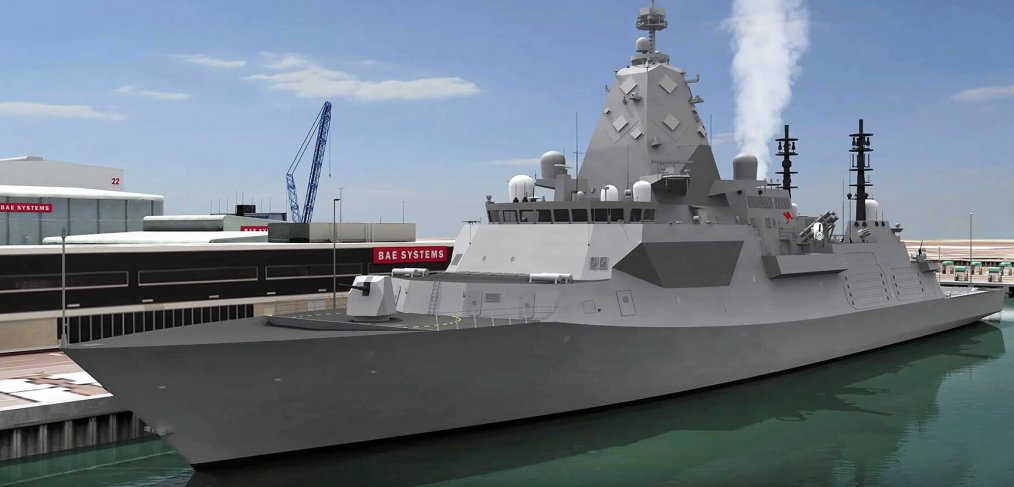As progress continues to surge ahead at the $535 million future frigate shipyard at Osborne, prime contractor BAE Systems Australia has reinforced the importance of innovation and collaboration between industry partners to support the delivery of the $35 billion Hunter Class frigate program.
To continue reading the rest of this article, please log in.
Create free account to get unlimited news articles and more!
SEA 5000 represents one of the largest recapitalisation and modernisation programs of Australia's surface fleet in the Navy's history. The $35 billion program is serving as the one of the major linchpin programs of the government's $90 billion Naval Shipbuilding Plan and is responsible for transforming Australia's sovereign shipbuilding industry.
The complexity of the Hunter Class program and the challenges resulting from establishing an entirely new naval shipbuilding industry is providing an opportunity for innovation and collaboration between prime contractors like BAE Systems Australia and the DMTC to further develop Australia's sovereign industry capability, with avenues for export opportunities.
BAE Systems Australia chief technology officer Brad Yelland, in an address to the DMTC Conference, outlined the opportunities for collaboration and innovation between industry partners to support the sustainable development of Australia's broader defence industry development, using the DMTC and its involvement with the $35 billion Hunter Class frigate program as a project template.
"I am pleased to be talking here today as the keynote speaker at this conference because, from BAE Systems’ experience of more than a decade of working with the DMTC model, we think this is a model that really works. The DMTC model has proven successful in bringing industry, academia and Defence together with a clear common focus and with the flexibility required to be agile," Yelland explained.
As part of BAE Systems Australia's tender, the company offer the 'digital shipyard' concept that will see the joint BAE/ASC workforce deliver the vessels from the early-to-mid 2020s, with a focus on:
- Growing Australian shipbuilding;
- Creating a continuous Australian shipbuilding capability; and
- Growing Australian jobs ( 1,000 new apprentice and graduate positions over the next five years) and going some way to replacing what was lost with the demise of the car industry in Australia.
"BAE Systems Australia has committed significant investment in capability and technology as part of the Hunter Program. Our Australian Industry Capability Plan was one of the strengths of our SEA 5000 proposal and now we are focused on implementing it," Yelland said.
The 'digital shipyard' concept will see BAE facilitate the transfer of intellectual property and technical data, including the digital ship design that has been optimised for the production of the new Hunter Class, combined with all the naval shipbuilding processes tailored to the specific requirements of the ASC shipyard in South Australia.
The digital shipyard concept will ensure that every aspect of the ship during the design and build and throughout its service life is live and accessible to the crew as well as all those involved in the maintenance and upgrades of the fleet and approved suppliers. People will be connected in their place of work to assured, readily understandable information and processes to evidence-based working in real-time.
Mr Yelland said, "We will establish a truly digital shipyard that is going to transform the way we build ships in Australia, putting us in the position of a world-leading shipbuilding nation."
Digitisation will also bring the ‘ship to life’ during its service life. Intelligent systems, on board and linked to those ashore, will monitor the performance of the ship and its systems, allowing ship’s staff to focus on the right tasks and ensuring that the right parts and specialist help are available before they are needed.
BAE's digital shipyard will include an inventory of parts, including cost and acoustic signature, suppliers and their details, providing Australian industry the opportunity to improve upon all parts and systems used in the construction of the Hunter Class frigates.
"Through this, we have facilitated relationships between Australian universities and those in the UK doing similar research and capability development, which further strengthens our transfer of capability into Australia. Our relationship with DMTC will play a significant role in realising our Hunter Australian Industry Plan."
The Commonwealth government will retain a sovereign share in ASC Shipbuilding while BAE manages the $35 billion SEA 5000 program. At the end of the program, the Commonwealth will resume complete ownership of ASC Shipbuilding, thereby ensuring the retention in Australia of intellectual property, a highly-skilled workforce and the associated equipment.
"We need to encourage Australian defence industry to embrace collaboration. To break down some of these walls we see all the time, that force competition and make it unnecessarily difficult around probity and that sort of stuff. Let’s truly embrace collaboration," Yelland said.
The growing global fleet of the Type 26 Global Combat Ship, which the Hunter Class is based on, is providing extensive supply chain opportunities for Australian industry, but collaboration between industry, government, academia and research organisations like DMTC play a critical role in maximising the scope for Australian industry involvement in the British and Canadian frigate programs.
"Let’s truly embrace collaboration. I’m not just talking about the big primes, I’m talking about SMEs, academia and other research organisations. We all need to work together to ensure we’ve got the resources, so that Australia can take advantage of this boom we’re currently in," Yelland explained.
BAE Systems was named in June this year as the preferred contractor for the $35 billion Hunter Class frigate program. Construction of the frigates will begin at Adelaide’s Osborne Shipyard in 2020, creating and sustaining 4,000 jobs across the nation.
BAE Systems, through ASC Shipbuilding, will deliver a highly capable and versatile multi-mission frigate designed to support anti-submarine warfare, air defence and general-purpose operations anywhere on the world’s oceans.

 Login
Login







